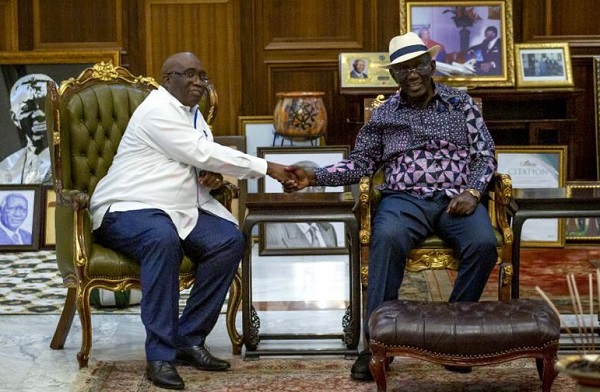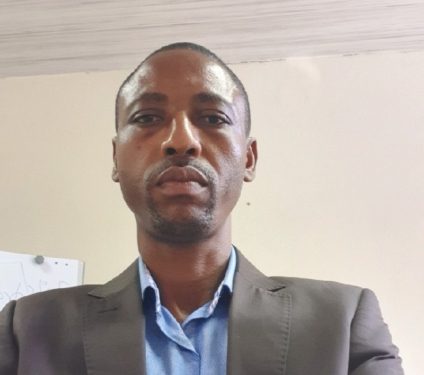Second board for the Office of the Special Prosecutor sworn-in

The 2nd Board of Office of the Special Prosecutor has been sworn in by the Attorney General and Minister for Justice, Godfred Dame.
The Board constituting nine members is tasked with advising the Special Prosecutor on policy issues and helping the office in the fight against corruption and corruption-related offences.
Notwithstanding its crucial role in the operations of the Special Prosecutor, the Office has been without a Board since the expiration of the Linda Ofori-Kwarfo Chaired Board over one year ago.
That raised a lot of concerns within the anti-corruption space in the country.
Members of the 2nd Board include; Kissi Agyabeng, the Special Prosecutor, Vivian Lamptey, Deputy Special Prosecutor, Lawrence Ndaago Ayagiba, Audit Service Representative, DCOP Wilfred Boahen Frimpong, Ghana Police Service Representative, Aba Jacqueline Opoku, Economic and Organised Crime Office (EOCO) Representative, Kofi Boahen A. Boakye, Financial Intelligence Center (FIC) Representative, Stephen Azantilow, Commission on Human Rights and Administrative Justice (CHRAJ) Representative, COP George Tuffour (Rtd), National Security Representative and Linda Ofori-Kwafo, Representative of Anti-Corruption Civil Society.
The National Security Representative was, however, absent at Tuesday’s swearing-in ceremony.
He would, according to the Attorney General, be sworn in at a later date by the Board Chairperson.
Give mechanisms of success
Giving his speech at the inauguration, the Attorney General urged the Special Prosecutor, to utilise five legal mechanisms in his establishing law in investigating, prosecuting and recovering proceeds of corruption:
(i) Search and seizure powers of the Office laid out from sections 32 to 37of Act 959,
(ii) The power to confiscate property under a court order provided for by section 50,
(iii) The power to apply to the court to compel the payment of a pecuniary penalty in respect of properties that cannot be the subject of an order for confiscation under section 60,
(iv) The power to apply to the Court to lift the veil to unravel the identities of persons and entities holding illicitly acquired property on behalf of others under section 62 of Act 959; and,
(v) The power to trace properties is spelt out in section 70.
“A proper exercise of these powers”, according to the Attorney General, “will ensure that the Office becomes a potent instrument of the State in its effort to root out corruption. The phenomenon of the creation of shell companies for the laundering and concealment of the proceeds of crime will be drastically reduced by the exercise of your powers under Act 959 just alluded to.”






